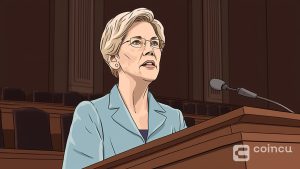Nigerian 2022 Finance Bill Including Crypto Tax Collections
According to Nigeria’s finance minister, Zainab Ahmed, the country’s 2022 finance bill includes measures that would allow the government to collect taxes on Bitcoin and other digital currency transactions.
The Cable reported when Nigeria begins collecting taxes on cryptocurrency transactions, it would join neighboring African countries such as South Africa and Kenya in doing so. The report also names Australia, India, the United Kingdom, and the United States as countries that tax digital asset transactions.
Ahmed stated that taxing such transactions fits with the Nigerian government’s larger goal of generating more revenue from e-commerce transactions.
“For instance, under the Tax Equity pillar, all sectors of the economy would be brought into the tax net including Capital Gains Tax from digital assets, cable undertakings, lottery and gaming business,” the statement quoted Ahmed as saying.
Following the conclusion of Ahmed’s presentation, the state governors of Sokoto, Borno, Kaduna, Kebbi, and Ogun all reacted to the measure. Their suggestions are supposedly included in the draft measure, which must be submitted to the Federal Executive Council. Following this, it is sent to the Nigerian National Assembly.
The Central Bank of Nigeria (CBN) directed banks in 2021 to close accounts of individuals or entities involved in cryptocurrency transactions within their systems.
The Central Bank of Nigeria said the downward slide has been fueled by speculation and pledged the bank is working to manage supply and demand challenges, especially faced by manufacturers and citizens who need dollars for business and tourism.
Public finance analyst Isaac Botti said government policies are the major reasons for the trend. He said:
“Government policies around trade balances over the years, we have consistently run trade deficits — spending more to buy dollars than we’re earning from foreign trade. Another significant problem is our level of borrowing.”
DISCLAIMER: The Information on this website is provided as general market commentary and does not constitute investment advice. We encourage you to do your own research before investing.
Join us to keep track of news: https://linktr.ee/coincu
Website: coincu.com
Harold
Coincu News





















